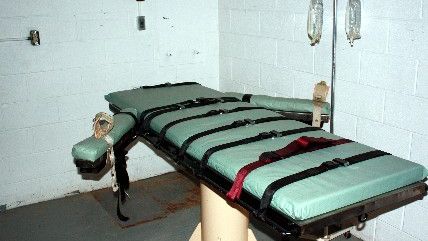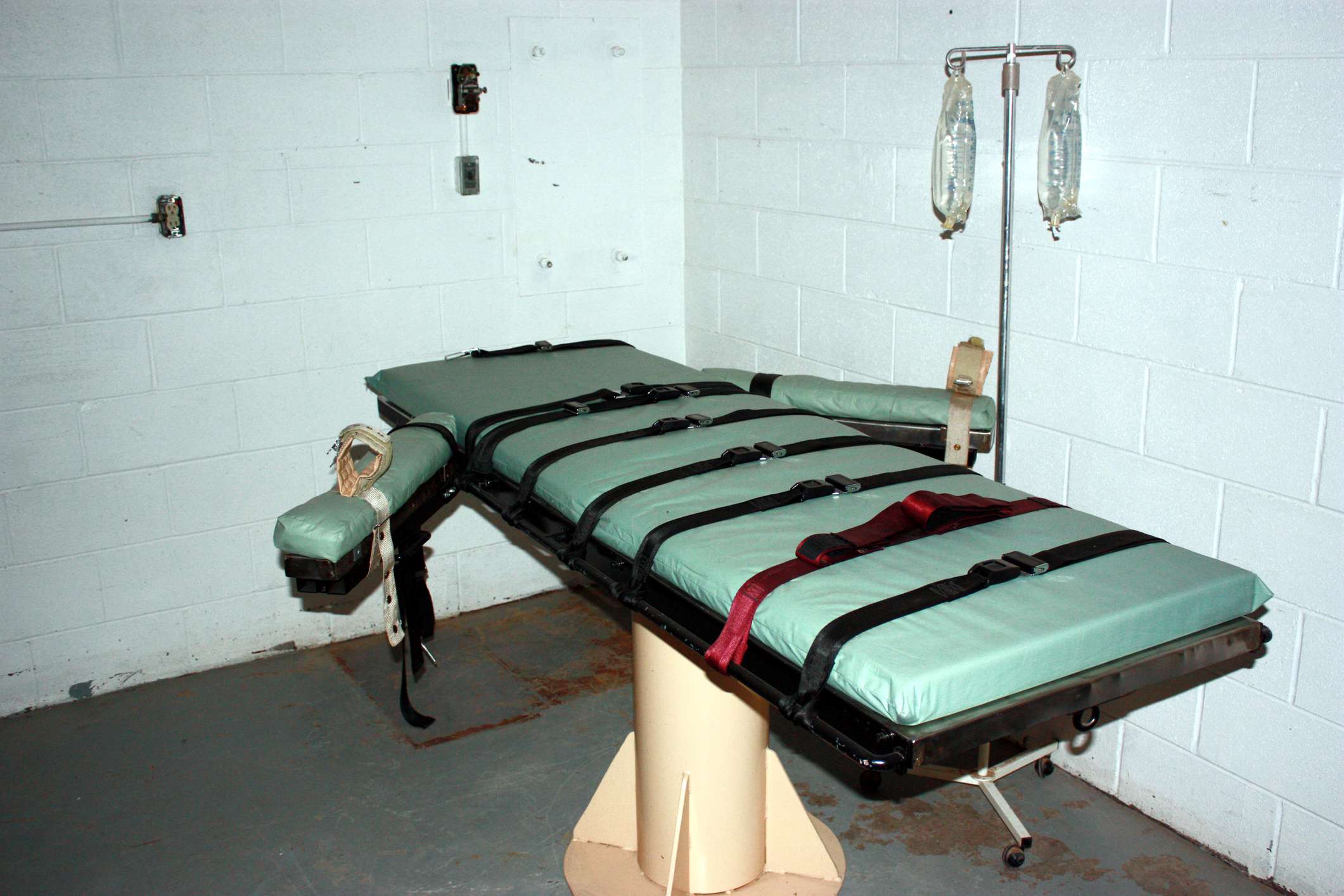Just Five Prosecutors Are Responsible for 440 Death Row Convictions
That amounts to one in every 20 death sentences since the death penalty was reinstated 40 years ago.


Harvard Law School's Fair Punishment Project released a new report late last month titled "America's Top Five Deadliest Prosecutors." In it, the authors describe the U.S.' use of the death penalty as a "personality-driven system" where "only a tiny handful of prosecutors are responsible for a vastly disproportionate number of death sentences."
Or as Ed Pilkington put it in The Guardian, "of the 8,038 death sentences handed down since the death penalty was restarted in the modern era 40 years ago this week, some one in 20 of them have been the responsibility" of the five district attorneys who give the report its title.
All but one of these prosecutors — Johnny Holmes of Harris County (Tx.) — have seen their cases revisited because of allegations of misconduct, although Holmes did preside over the conviction of one person who ended up being exonerated. The assistant prosectuors overseen by Holmes put 201 people on death row — averaging 12 per year — before he retired in 2000. Since then, his successors have averaged about one death penalty conviction per year.
Of the other "Top Five," Lynne Abraham of Philadelphia County (Pa.) oversaw the death penalty convictions of 108 people, with two ultimately exonerated. Donnie Myers of Lexington (S.C.) secured 39 death penalty convictions, but according to the report, Myers was found to have committed misconduct in 46 percent of his capital cases. A former colleague was quoted as saying of Myers, "The only reason he gets up in the morning is to try death penalty cases. Virtually the only time you see him in the courtroom is when he's trying to kill people."
During Joe Freeman Britt's 14 years as lead prosecutor of Robeson County (N.C.), he put 38 people on death row and according to the report, "a person in Robeson County was almost 100 times more likely to be sentenced to death than a randomly selected person in the United States." Britt was found to have committed misconduct in 14 of his 38 capital cases, and two mentally-disabled teen-aged brothers he sent to death row were also exonerated.
Finally, Bob Macy of Oklahoma County, who reportedly told a jury it was their "patriotic duty" to sentence a defendant to death and who "was dragged from the courtroom after reaching for his gun when a jury acquitted six defendants," secured 54 death penalty convictions from 1980-2001, the most of any American prosecutor. According to the Harvard report, misconduct was found in 18 of his 54 capital convictions, and three convicts were ultimately exonerated.
The report also quotes Supreme Court Justice Stephen Breyer as saying, "It is now unusual to find capital punishment in the United States…[because] capital prosecutions are being pursued in only a few isolated counties." This is correct, and it demonstrates the "personality-driven system" the reports authors write of. Pilkington adds in The Guardian:
Breyer found that "40 years of experience make it increasingly clear that the death penalty is imposed arbitrarily, without the reasonable consistency legally necessary to reconcile its use with the constitution's commands." One of the examples he gave of inconsistency was that not only do some states allow the death penalty while others do not, but also "within a death penalty state, the imposition of the death penalty heavily depends on the county in which a defendant is tried."
In the report's intro, former Caddo Parish (La.) District Attorney Dale Cox is quoted as saying, "I think we need to kill more people," adding "revenge…brings to us a visceral satisfaction." It's important to note that Caddo Parish is where Glenn Ford was falsely convicted of murder and sent to death row, in part because an overzealous prosecutor relied on "junk science" while pursuing a conviction at any cost. The prosecutor in Ford's case, A.M. "Marty" Stroud III, would ultimately beg Ford for forgiveness after he was released from prison after 30 years, but Ford died of cancer less than a year after his release. Since then, the state (and the state's courts) have been doing everything they can to make sure Ford's family receives no compensation for the life stolen from him.
Watch Reason TV's 2015 doc "The Battle for Death Penalty Transparency" below:


Show Comments (6)